If you get a black or blank screen when you’re in Zoom call, don’t panic. This post will show you how to fix Zoom black screen issues on a Windows device.
Here are 6 fixes to try. You may not have to try them all; just work your way down the list until you find the one that does the trick!
Fixes to try:
Fix 1: Restart your computer
If you haven’t tried this yet, give it a shot. A simple reboot almost always works when it comes to software glitches.
Fix 2: Turn off automatic GPU switching
GPU switching allows you to maximize your graphic performance and prolong battery life when you have more than one graphics card. For many users, turning off the auto GPU switching feature fix the Zoom black screen issues.
1) Right-click an empty space on your desktop and select Nvidia Control Panel

2) Select Manage 3D Settings.

3) Select Program Settings, then click Add.

4) Click Browse.

5) Find Cpthost.exe from the Zoom bin directory (located at C:/>Users>YOURUSERNAME>AppData>Roaming>Zoom>bin).

6) Under Select the preferred graphics processor for this program, select Integrated graphics

7) Click Apply.

If this didn’t fix Zoom black screen issues for you, try the next fix below.
Fix 3: Update your graphics driver
This issue could happen when your graphics driver is not compatible or gets corrupted somehow. So you want to make sure that your graphics driver is updated.
You can manually check the driver for your graphics card by going to the manufacturer’s website and searching for the most recent correct driver. Be sure to choose only driver that is compatible with your Windows version.
If you’re not comfortable playing with device drivers, we recommend using Driver Easy. Driver Easy will automatically recognize your system and find the correct driver for you.
You don’t need to know exactly what system your computer is running, you don’t need to risk downloading and installing the wrong driver, and you don’t need to worry about making a mistake when installing.
1) Download and install Driver Easy.
2) Run Driver Easy and click the Scan Now button. Driver Easy will then scan your computer and detect any problem drivers.
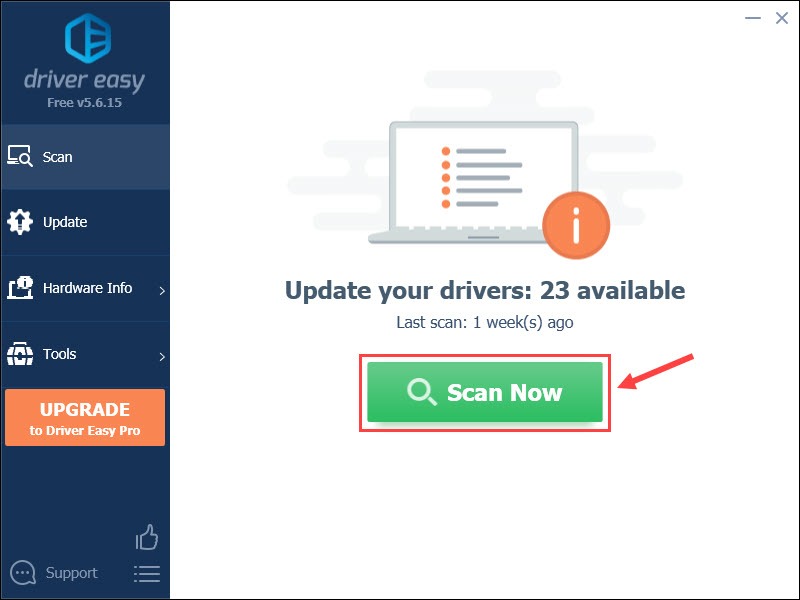
3) Click the Update button next to the video driver to automatically download the correct version of that driver, then you can manually install it.
Or click Update All to automatically download and install the correct version of all the drivers that are missing or out of date on your system. (This requires the Pro version which comes with full support and a 30-day money-back guarantee. You’ll be prompted to upgrade when you click Update All.)
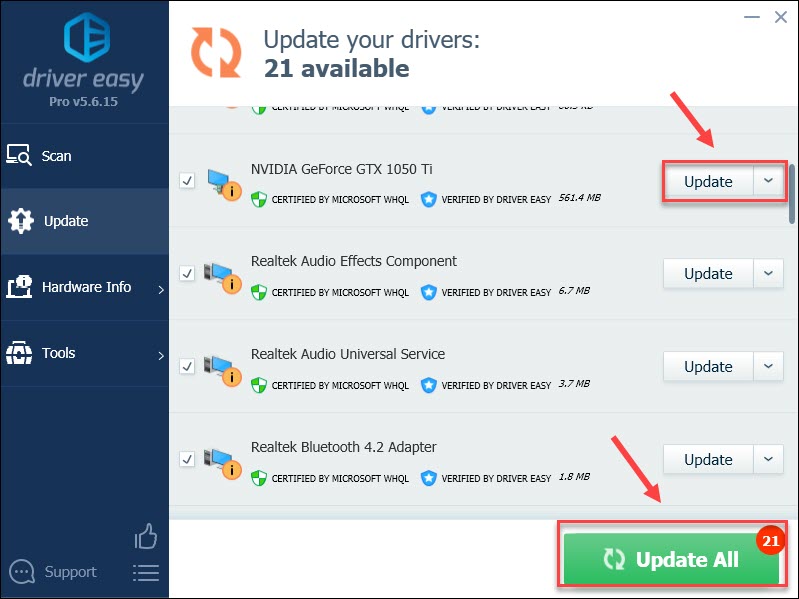
If you need assistance, please contact Driver Easy’s support team at support@drivereasy.com.
4) Restart your computer and Zoom to test the issue.
If you still have the problem, then try the next fix below.
Fix 4: Turn on/off Hardware Acceleration
When you run an application, it uses the standard CPU on your computer. If you run a heavy task, such as sharing your screen from Zoom, your app will use other hardware components on your PC to work more effectively.
If you have good hardware, enabling Hardware Acceleration will result in better performance of your application; however, if your hardware is weak, this feature may cause problems for you.
To see if this is the culprit for the black screen, try turning off/on Hardware Acceleration.
1) Open Zoom.
2) Go to Setting > Share screen > Advanced.
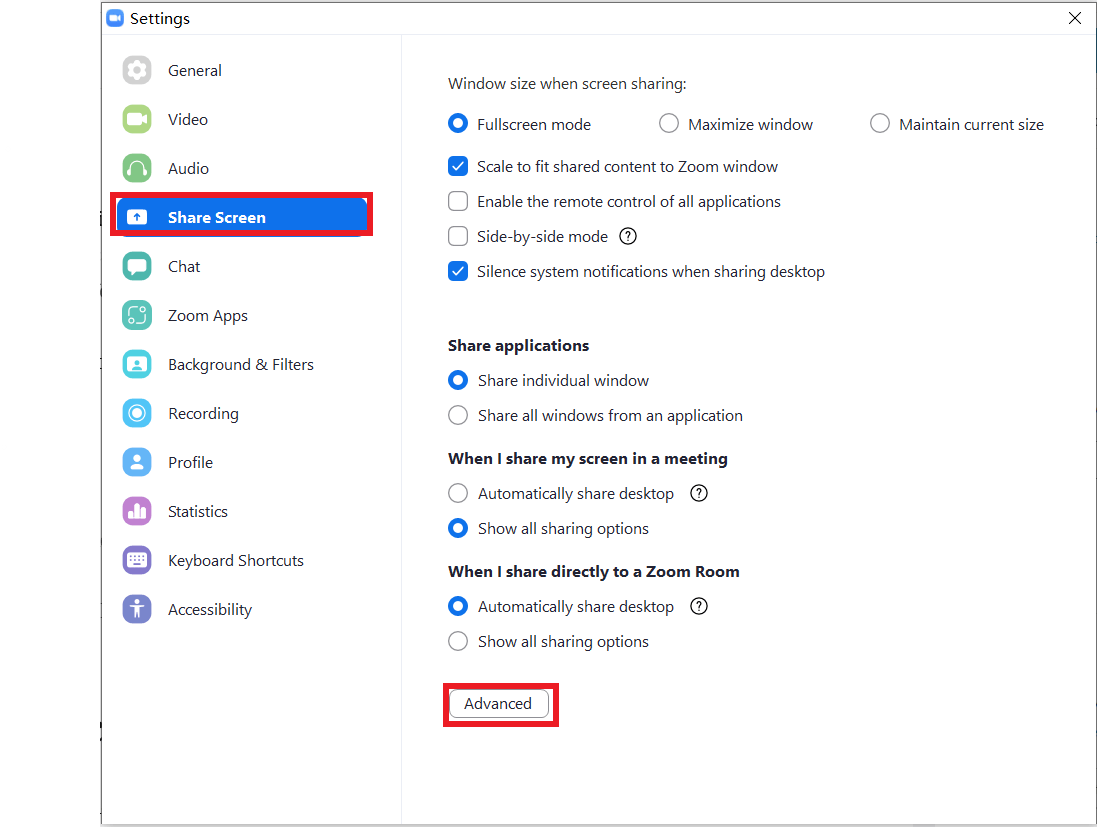
3) Uncheck Enable hardware acceleration to optimize video sharing.
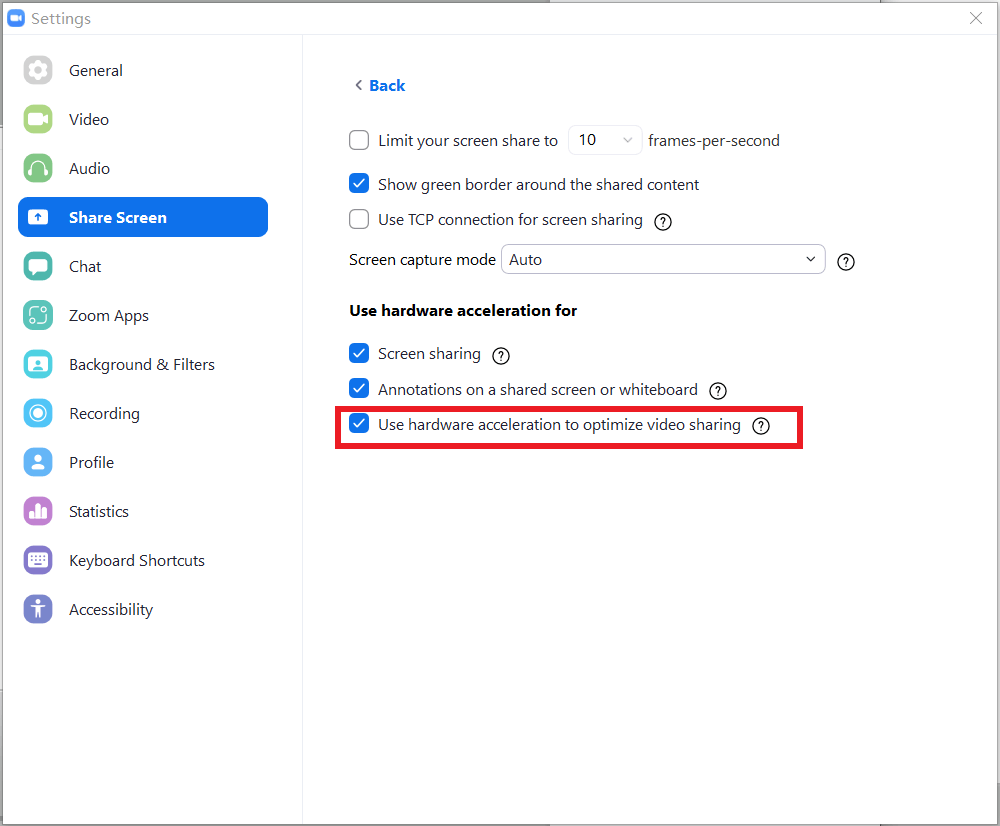
Try screen sharing again with Zoom. If the black screen issue happens again, try the next fix.
Fix 5: Exit full-screen mode
If you’re running Zoom on the full-screen mode when the issue occurs, try exiting out of the full screen and then share your screen.
1) Open Zoom.
2) Go to Settings > General.
3) Uncheck Enter full screen automatically when starting or joining a meeting.
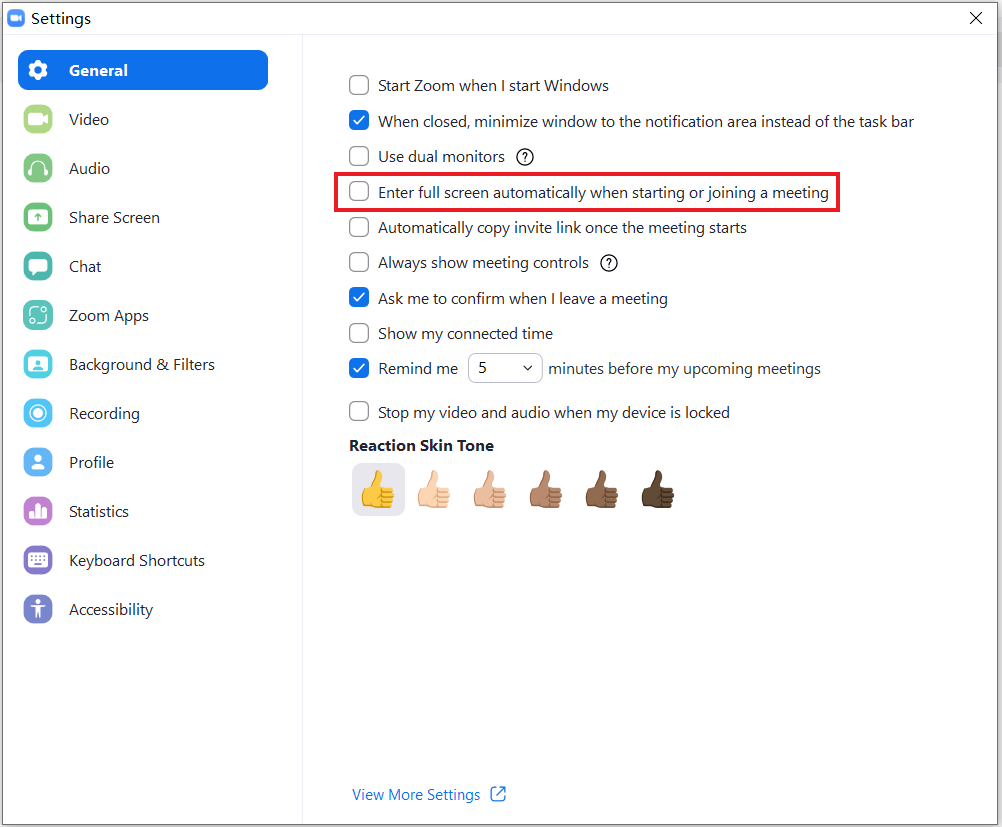
If the issue still exists, then move on to the next fix below.
Fix 6: Reinstall Zoom
If you still can’t get Zoom to work correctly, it could be an issue with Zoom installation files. In this case, uninstalling Zoom then reinstalling it could help.
1) On your keyboard, press the Windows logo key and R at the same time to open the Run command.
2) Type appwiz.cpl and click OK.
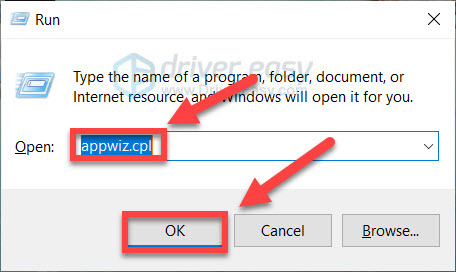
3) Right-click Zoom and click Uninstall.
4) Download and install Zoom.
Hopefully, one of the fixes above has solved your problem! Please feel free to leave a comment if you have any questions or suggestions, or let us know if you manage to resolve this issue in some other way!





